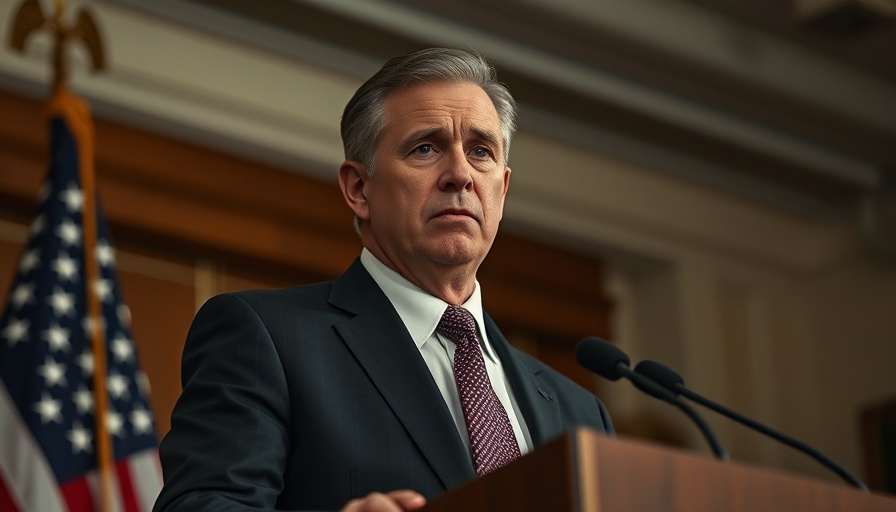
Eric Adams' Legal Battle: Seeking Justice or Just Distracting Tactics?
In a significant development, New York City Mayor Eric Adams has recently requested a federal judge to dismiss corruption charges against him, citing alleged prosecutorial misconduct. The case has generated considerable public interest, especially among taxpayers who are keen on the integrity of their city's leadership.
Understanding the Prosecutorial Misconduct Claims
Adams' attorneys argue that his case is built on a shaky legal foundation, exacerbated by alleged misconduct from the U.S. Department of Justice (DOJ). Central to their argument is a leaked letter from former acting Manhattan U.S. Attorney Danielle Sassoon, suggesting that the DOJ might have engaged in a quid pro quo regarding Adams' fate. This revelation serves not only to challenge the validity of the charges but to cast doubt on the motives behind them.
Was the Case Politicized?
The broader question looming over this situation is whether judicial processes have been politicized. A notable aspect is that several federal prosecutors resigned in protest of the DOJ's direction to dismiss Adams' case without prejudice, which would allow for potential re-filing of charges in the future. Adams' defense team claims that such actions have irreparably damaged his presumption of innocence, urging the court for a stipulation that would permanently dismiss the case.
Implications for Accountability and Governance
This unfolding saga speaks volumes about the intricate relationship between political leadership and accountability. Adams stands at a precarious crossroad where his case could set a precedent for how similar cases are handled in the future. If he succeeds in having the charges dismissed with prejudice, it may elevate public trust in political processes; conversely, if the case remains unresolved, it could diminish confidence in the administration.
The Taxpayer's Stake in this High-Stakes Drama
For taxpayers, the implications are profound. The perception of illicit actions within governmental ranks can foster distrust and hinder effective governance. Moreover, how well this situation unfolds could motivate taxpayers to seek better oversight and accountability from their elected officials. It also serves as a reminder for citizens to remain engaged and vigilant about their leadership choices, which ultimately affects their financial and social wellbeing.
Conclusion: A Call for Informed Civic Engagement
As this legal battle continues to evolve, it poses an important question: How can taxpayers ensure their interests are protected in the political arena? Engagement with local governance and robust dialogues about accountability are critical. Every citizen should raise their voice and be part of the conversation surrounding ethics in government.
 Add Row
Add Row  Add
Add 


Write A Comment